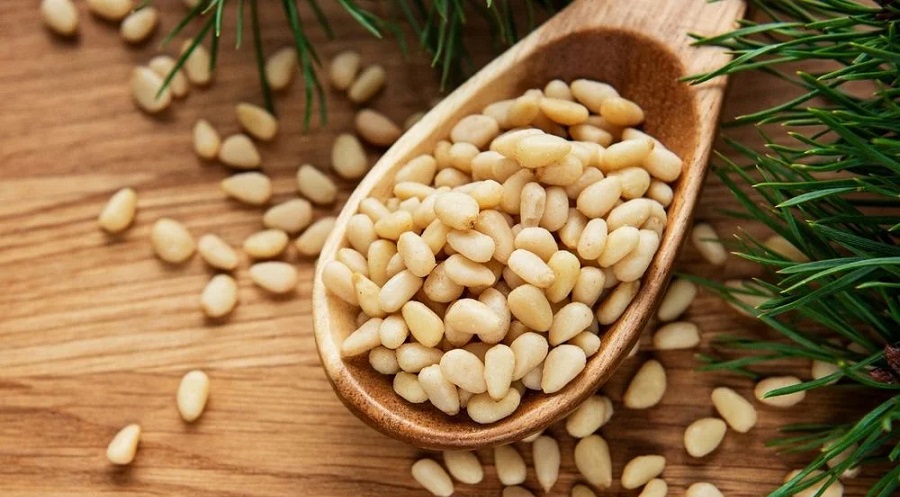Pine nuts are also named pignoli or pignolia nuts. Pine nuts are seeds. Pine nuts come with a hefty cost tag cause of their labor-intensive harvesting procedure. Pine nuts demand is high in numerous industries, including confectionery, oil, beverages, and bakery. The Pine nuts are native to North Korea, China, Pakistan, and Russia. Pine nuts need about a year and a half to ripen, but it may take more time than time under unfavorable cases.
Harvesters divide the nuts or seeds from the pine cone by hand. After long hard work, you gain these gluten-free and tasty nuts.
Nutrients In Pine Nuts
- Polyunsaturated fat
- Calories
- Carbohydrates
- Mono-unsaturated fat
- Protein
- Vitamin E
- Niacin
- Potassium
- Phosphorus
- Magnesium
- Calcium
- Zinc
- Iron
Health Benefits of Pine Nuts
Good For Brain Health
The omega-3 fatty acids help brain health by slowing mental decline. They lower depressive symptoms and the chances of dementia. Pine nuts are a good source of brain-increasing Omega-3s.
Glycemic Control
Pine nuts are high in phenolic compounds, which improve blood glucose control. Additionally, unsaturated fats in pine nuts have beneficial impacts on fasting blood glucose levels. The mineral manganese from these small nuts reduces the chance of diabetes.
Good For Heart Health
Low-density lipoproteins (LDL) and High blood cholesterol levels raise heart disorder chances. High LDL triggers artery constriction and plaque buildup that may cause a heart attack. However, pine nut oil is high in a polyunsaturated fatty acid known as pinolenic acid.
Good Source of Magnesium
Pine nuts are a good source of minerals, including magnesium, which is popularly known as a mood stabilizer, body calmer, and sleep improver.
Best For Eyesight
The antioxidants and beta-carotene in pine nuts stimulate eye health. These nuts also contain vitamin A and lutein, which help sharpen vision growth.


